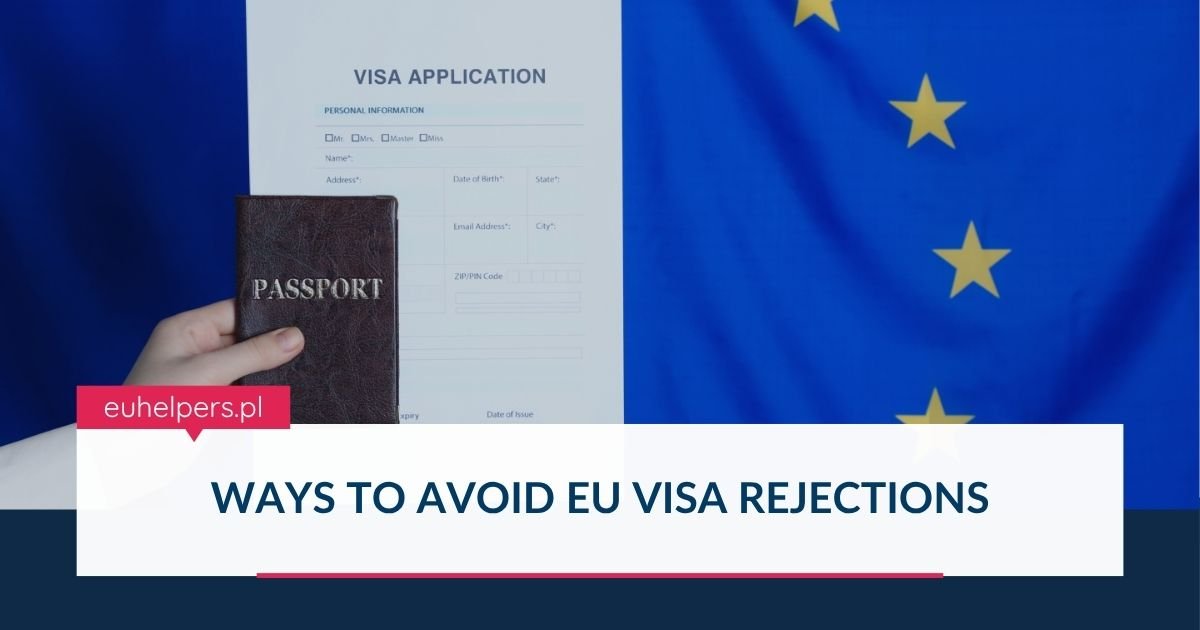Applying for a European visa can be a meticulous process, and even minor mistakes can lead to rejections. However, with proper planning and careful attention to detail, applicants can significantly improve their chances of success.
1. Submit a Complete and Accurate Application
Accuracy and completeness are the foundation of a strong visa application.
-
Use the correct and updated application form for the visa type and country you are applying to.
-
Fill in all required fields with precise information—this includes your personal details, travel dates, and the purpose of your visit.
-
Ensure consistency across documents. Discrepancies between the application form, passport, and supporting documents can raise red flags.
-
Double-check for errors and typos before submission.
-
Attach all required documents, such as your passport, travel insurance, accommodation details, itinerary, proof of funds, and other relevant papers.
2. Demonstrate Financial Stability
Proving that you can financially support yourself during your trip is crucial.
-
Submit recent bank statements (typically covering the last 3–6 months) that reflect stable income and sufficient funds.
-
Include salary slips and income tax returns (ITR) if you are employed.
-
Provide a sponsorship letter (if someone else is funding your trip), along with their financial documents and proof of relationship.
-
Avoid making large, unexplained deposits before your application, as this can raise suspicion.
3. Clearly Define Your Travel Plans and Purpose
A well-documented travel plan helps reassure authorities of your genuine intent.
-
Provide a detailed travel itinerary outlining your entry and exit dates, destinations, activities, and travel schedule.
-
Show confirmed accommodation bookings or a formal invitation letter if staying with a host.
-
Clearly explain the purpose of your trip, whether it’s tourism, business, study, or visiting family. Attach appropriate documentation like invitation letters, admission letters, or event registrations.
-
Demonstrate strong ties to your home country—employment, property ownership, family commitments, or ongoing education—which confirm your intent to return.
4. Secure Valid Travel Insurance
Travel insurance is a non-negotiable requirement for Schengen visas.
-
Purchase comprehensive travel insurance that covers emergency medical expenses, repatriation, and other potential risks during your stay.
-
Ensure the policy meets the Schengen area’s minimum coverage requirement of €30,000.
5. Be Honest and Transparent
Integrity plays a major role in the success of your visa application.
-
Answer all questions truthfully, whether in the application or during a visa interview.
-
Disclose any previous visa rejections and explain the circumstances honestly.
-
Never submit false or forged documents—this can lead to an immediate rejection and possible entry bans for future applications.
6. Apply Well in Advance
Time is a critical factor in visa processing.
-
Submit your application at least 3–4 weeks before your intended travel date.
-
Avoid last-minute applications, as they increase the risk of rejection due to time constraints and missing documentation.
7. Seek Professional Guidance if Needed
If you’re unfamiliar with the process or unsure about your documentation:
-
Consider consulting a visa expert or travel consultant who can guide you through the requirements and improve your application’s accuracy and presentation.
While no visa is guaranteed, following these steps can greatly reduce the risk of rejection. A well-prepared and honest application, backed by strong supporting documents and submitted on time, sends a clear message of credibility and purpose. With thoughtful planning and attention to detail, your chances of securing an EU visa are significantly improved.

